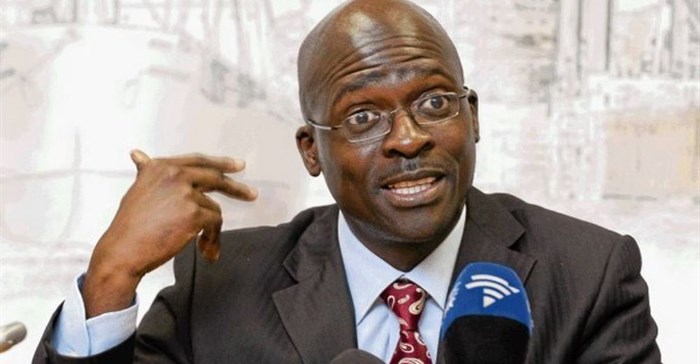
Top stories






More news












Logistics & Transport
Uganda plans new rail link to Tanzania for mineral export boost












A departure by Fuzile would raise questions as to whether more of the Treasury's senior officials might walk out, eroding the technical expertise and institutional memory of the 1,000-strong Treasury.
Gigaba is understood to have moved into the Treasury's Church Square offices in Pretoria with 16 of the ministerial staff and advisers who served him in his previous post at home affairs.
His predecessor, Pravin Gordhan, shared a ministerial staff of just nine people with his deputy Mcebisi Jonas.

The Gigaba entourage includes political adviser Thamsanqa Msomi, who serves on the Denel board and has been reported to have Gupta links, and legal adviser Kholeka Gcaleka. The minister's spokesman, Mayihlome Tshwete, who declined earlier on Tuesday to name the advisers, provided the two names on Twitter, saying he would announce other key appointments when finalised.
The highly regarded Fuzile, who has been with the Treasury for 19 years and in his post for six years, said on Tuesday that he had not been asked to leave.
"Be fair to the minister, no, I have not been asked to resign."
However, Fuzile is understood to have been devastated by the insinuations against him in the so-called intelligence report, which President Jacob Zuma used to justify sacking Gordhan and Jonas.
Fuzile urged journalists at a media briefing on Monday not to "demonise" him if he did depart, saying the director-general's job was an extremely tough one and if SA wanted good people to join the public sector they should also be allowed to leave. He had hinted earlier that he might not see out his contract, which ends in May 2018.
Meanwhile, the minister revealed on Tuesday that S&P Global Ratings had made its decision to downgrade SA's foreign currency debt rating to subinvestment grade (junk status) on Friday morning, just hours after Zuma's cabinet reshuffle, but would not explain why. Although he had been informed confidentially of S&P's decision on Friday, he still assured media on Monday that SA would not be downgraded "because of just one person".
The minister also disclosed that it was felt there was no point speaking to S&P because the ratings agency was not going to change its mind, but he had spoken to Moody's and Fitch on Friday.
Moody's put SA's ratings on review for a downgrade on Monday night, just hours after S&P's downgrade was announced. A downgrade review typically took 30 to 90 days, a Moody's spokesman said, and the agency would therefore not go ahead with its scheduled statement this Friday.
In a detailed update published on Tuesday, Moody's said it could downgrade SA's rating if the recent reshuffle of the Cabinet "signalled a deterioration in the effectiveness of government or in the credibility of its policy-making and " in the country's economic and/or fiscal strength".
Though Moody's rating is two notches into the investment grade band, analysts say a two- notch downgrade, to subinvestment grade, is possible.
Moody's, also on Tuesday, put SA's five largest banks on review for a downgrade, citing the potential weakening of the government's credit profile. Also on review are the ratings of four insurance groups, Sasol, Bidvest, Transnet and development finance institutions.
Asked what he was going to do to stop the other two ratings agencies from downgrading SA, Gigaba said on Tuesday he had written to ANC officials, requesting a meeting to discuss the importance of the political management of change.
"I am concerned that discordant views are creating confusion in society and in the market and if we do not address the situation and speak with one voice on changes, it will continue to harm us," he said.
The minister also said he intended making calls to CEOs and heads of business organisations, as well as labour, to set up opportunities to meet these groups and invite them to come with him to see ratings agencies and investors